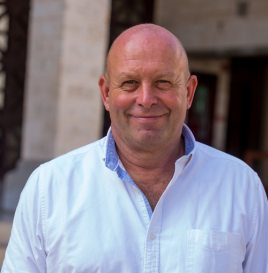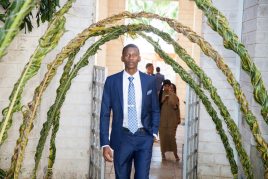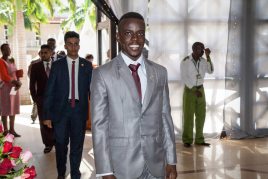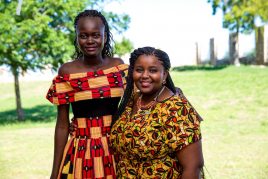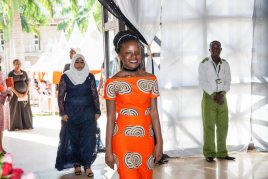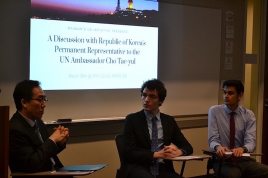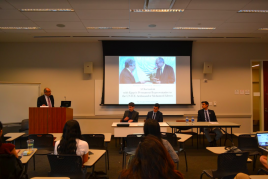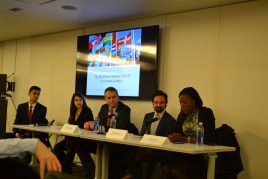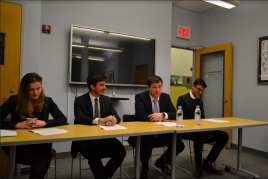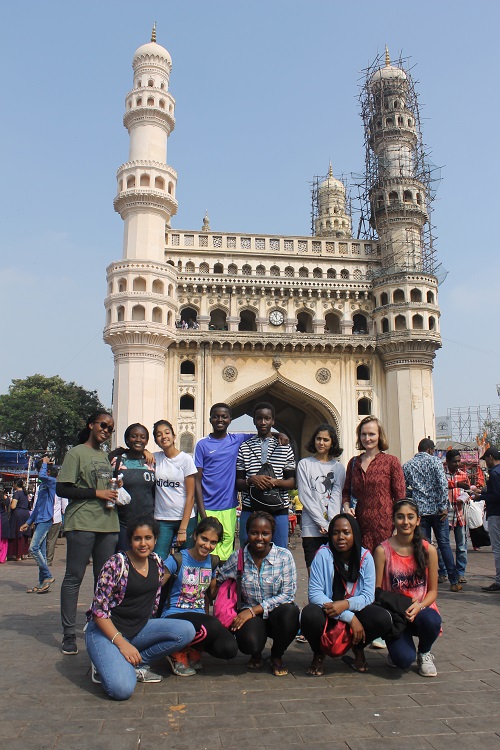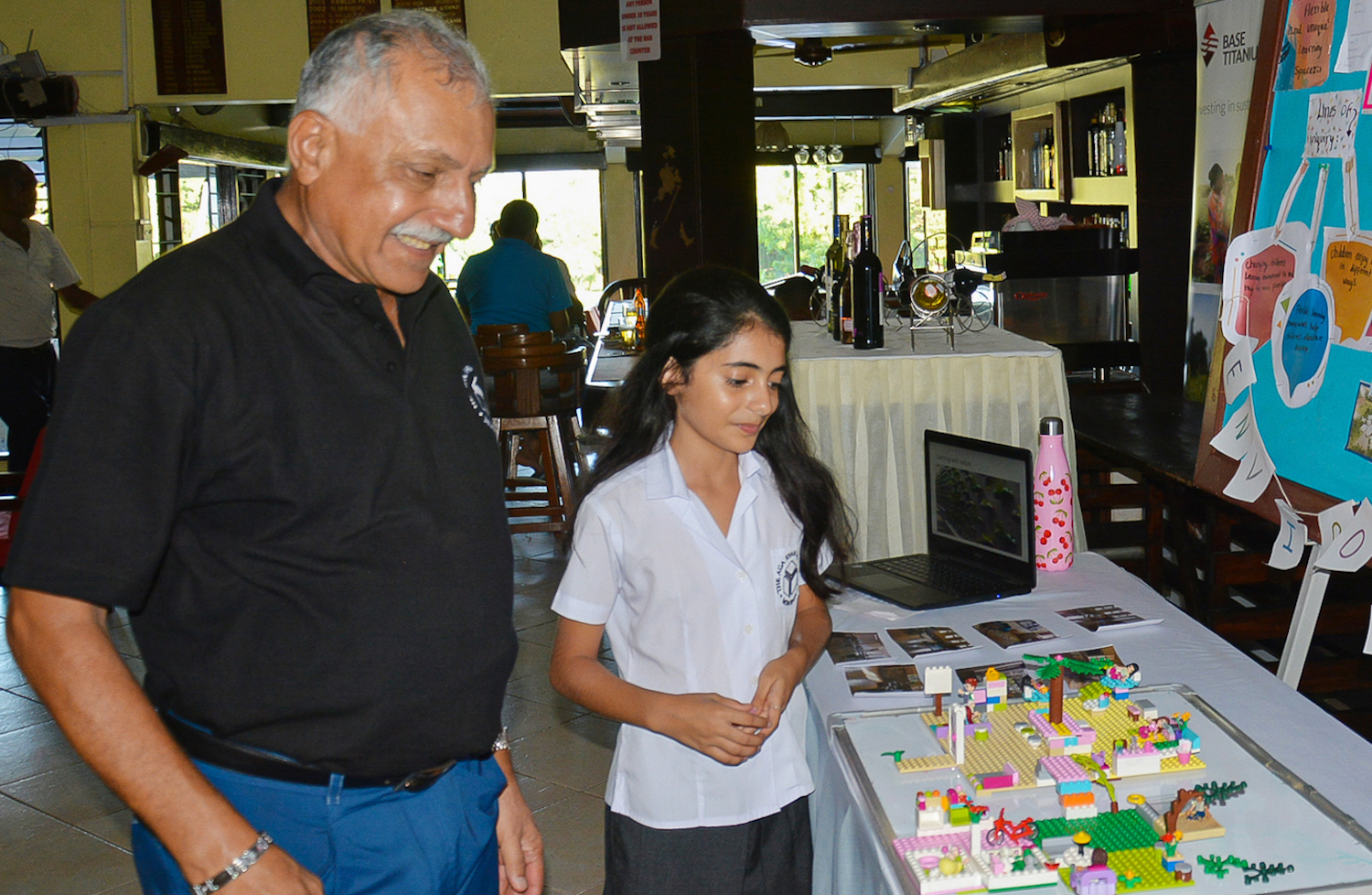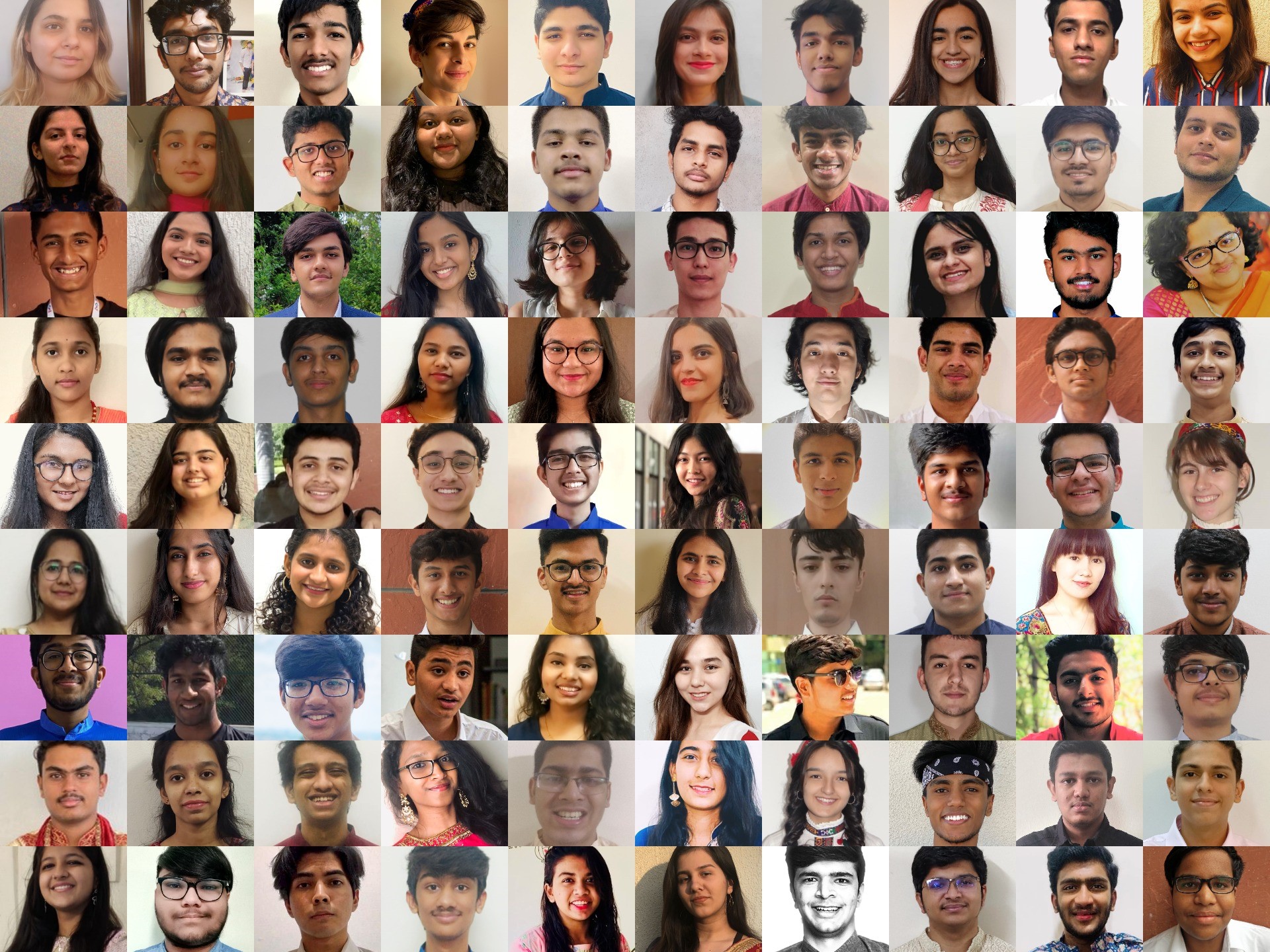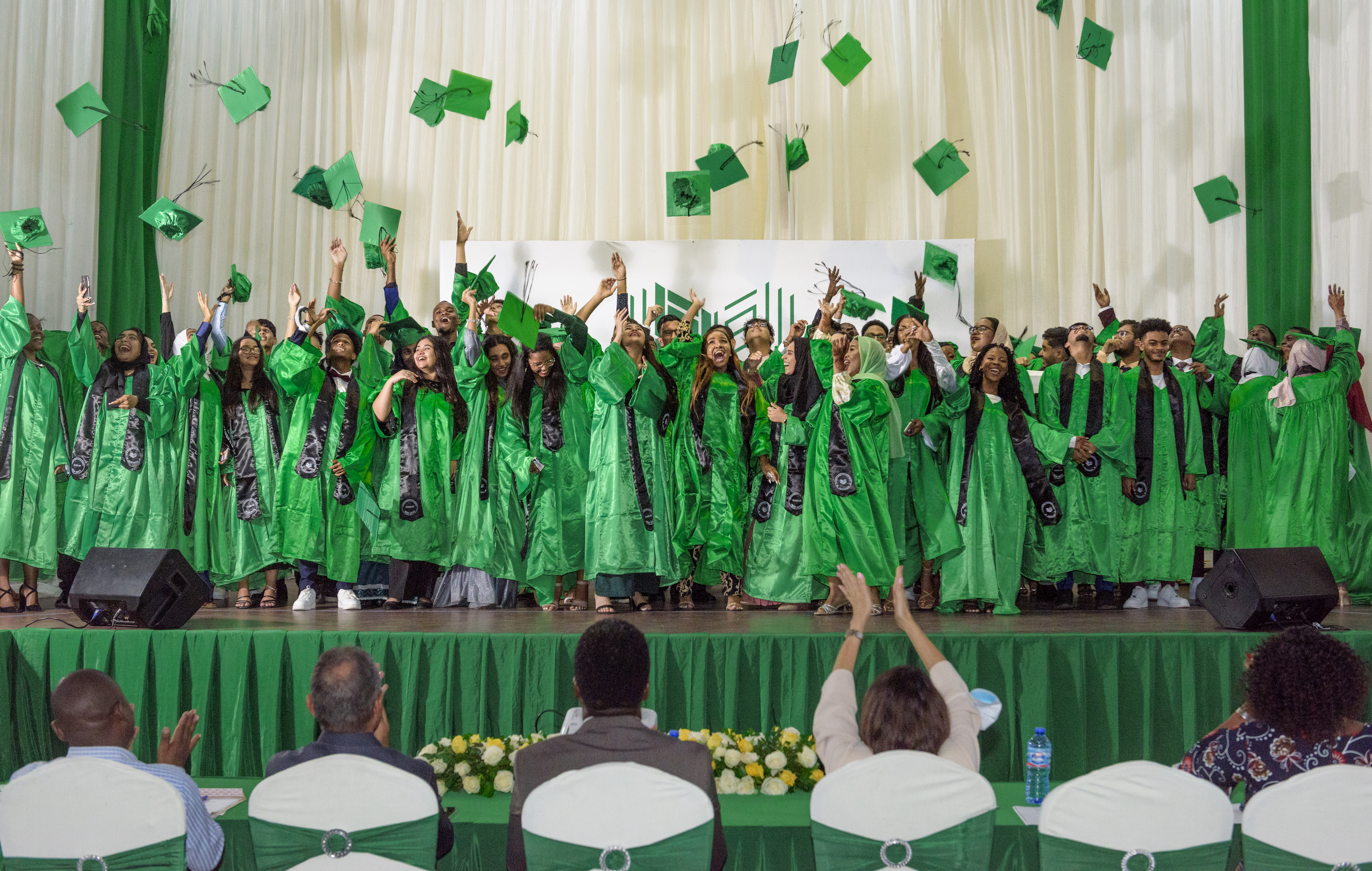Talent Identification Students: Creators of destiny
One of the great African presidents, Julius Nyerere, once said that the point of education was to turn creatures of destiny into creators of destiny. As the Dean of Admissions and Financial Aid at the Aga Khan Academy Mombasa, I have passionately led a Talent Identification Programme for nearly ten years now. The programme identifies “creators of destiny”, students in Year 6 in Kenyan government schools, in deprived socio-economic and educational areas of Kenya, who are academically able and show leadership potential. This May, seven of these students have fulfilled part of their destiny, in graduating from the IB Diploma Programme. Six of these seven students have secured a path to their next destination in life, by gaining access to some of the best universities in the world, on full scholarships. The Academy has guided and nurtured the students to have the confidence to become “creators of destiny”. The vision of His Highness the Aga Khan is that these students, as well as other members of the 2018 graduating class, will go out and be creators of change in their own communities.
As a teacher, the idea of educating a child for profit has always repelled me. The Academy’s inclusive culture was one of the factors that appealed to me when I first applied for the post at the school, as was the opportunity to lead the Talent Identification Programme. (Coming from a very working class background myself, I know that my parents would never have afforded me the opportunity to gain access to a secondary or higher education, without the assistance of the state system in the United Kingdom). From the outset, I can honestly say that not all teachers were supportive of bringing these students into the school’s residential programme. I did have a picture in my mind of how successful this could be from my work at previous schools, but I must admit, I did have sleepless nights about the scale, severity and scope of it all.
The assessment process in identifying these students has evolved and refined over the years. One very important aspect of innate leadership that is assessed is that of inferential thinking, the ability to make connections across different areas of knowledge. From this graduating cohort, I always remember one of the students exhibited exceptional ability in this area. Japheth Otieno, at the age of 11 then, referred to the inter-relation between governments causing difficulties in a problem solving activity when he mentioned, “Imagine that a Country A is helping Kenya with aid and money. Imagine that another Country B is an enemy of Kenya. Conflict may arise between Countries A and B, as there is suspicion over the reasons for this assistance to Kenya.” In the selection interviews, we look for students who are likely to question their world, have a keen sense of justice and morality, have good verbal communication skills and a sense of extra-curricular involvement. Japheth impressed me with his references to whether there was a multi-level universe or not and his passion for his kitchen garden, where he had initiated some preventative measures for protecting his plants. Japheth has now secured a place with the King-Morgridge Scholarship at the University of Wisconsin Madison in the United States.
I am delighted that this cohort sees the first student from the Ganze area, William Baya, graduating. I remember meeting William for the first time in 2011. At that time, the Kilifi County Governor reported widespread hunger in some parts of the county, especially for families living in the semi-arid areas. Learning in hundreds of primary schools in hunger-stricken parts of the country had been paralysed as the government dispatched emergency relief supplies. It was against this backdrop that we first met William, then a student at Vitengeni Primary School. William had already showed some leadership traits with him being involved as a scout commander and a school prefect. His school felt that he was a responsible and determined pupil. He mentioned about working hard in life so that he could target his goals – his motto at that time was “front ever, back never”. The self-drive William displays from adhering to this motto has guided him through the six years at the school and given him a full scholarship to attend Washington and Lee University in the United States. On learning of this, his father beaming with great pride said, “The Aga Khan Academy Mombasa has transformed my boy and that I am looking forward to him to come back and work for the community to repay the Aga Khan's contribution.”
One unique aspect of the Aga Khan Academy Mombasa, is its double heritage of world-mindedness and its proud East African identity. Since the inception of the school in 2003, Swahili has been compulsory for all students up to 14 years of age. His Highness recognised the need for young leaders to be able to communicate in their national language with other members of their community. (It is interesting to note that other non-national schools have only recently introduced Swahili into the curriculum for all students after a recent government directive). The Academy is at the forefront of academic thinking and is always forward thinking.
The development of the students in the school to “creators of destiny” is by no means left to chance. From this double heritage foundation, important concepts such as those of meritocracy, pluralism, ethics and other virtues and attributes that make up the students’ learner profile, have been integrated into all aspects of the curriculum. The students are allowed to run the risk, among other things, of failure because the privation of not succeeding can be an excellent teacher. Students are also given responsibility so that they can experience and learn from taking leadership roles. This is encouraged in every student. The students take charge in aspects of enrichment, academics and service, so that they are held accountable and answerable for their decisions, both when they get it right and when they fail.
Prudence Hainga after graduating this year will join the University of Edinburgh to study Political Science. Prudence reflected on what this scholarship meant to her and her community. “I want to realise my childhood dream of fighting injustice and corruption in Kenya. Having experienced and witnessed different levels of inequality in my country, I want to delve into a career path that will help me change what has become a detrimental routine in my country. The Kenyan political system is majorly defined by tribalism and inequality. Therefore, learning how political systems function and what others have done to ensure sustainable development as well as spread out opportunities for their citizens, will help me to decipher ways in which I could impact change in my country’s political system and rid Kenya of tribalism and greed. I am motivated to use my knowledge as a weapon against discrimination and inequality and work for a better Kenya – a Kenya that feels like home to all.”
These young men and women who have benefited from this progamme, did not have a great deal when they first came to the Academy, and their future was continually uncertain, with parents struggling to secure jobs, keep food on the table as well as educating their children. To see them grow and nurture and fulfil what was expected of them at this moment in time brings a lot of satisfaction. I have taught in many schools throughout the world, but there is something unique and special about this graduating class and other students at the school. The school recently had a visit from the representative from the International Baccalaureate Organization. On commenting on the school the one thing that stood out in my mind was his reference to the children here. He simply said that the children were “staggering”. These staggering students are helping to fulfil our mission for the Aga Khan Academy Mombasa that fits with building a better Kenya.
By Paul Davis
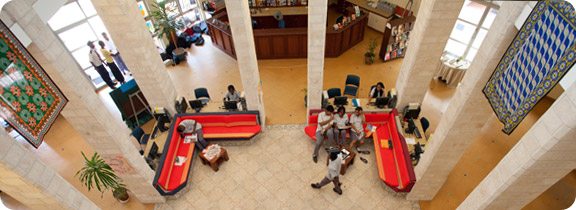
Enquiries
Parents can complete the online enquiry form by following the link at the bottom of this page or contact the Admissions Office at the following address:
Admissions Office
The Aga Khan Academy, Maputo
c/o The Aga Khan Development Network
1187 Julius Nyerere
Maputo
MOZAMBIQUE
Tel: (+258) 2174 9094
Email: info.maputo@agakhanacademies.org
Online Enquiries
Leave wholesome planet better than you found it for our successors
Dr Azim Lakhani shares examples of stewardship by different AKDN agencies in Kenya in an op-ed in the Daily Nation. The article also features examples from AKA Mombasa with regards to sustainability and innovation.
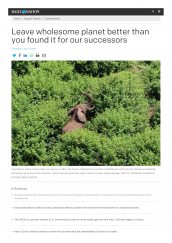
Raghuveer Vyas (Class of 2016): Advocating for change and development
Raghuveer Vyas graduated from the Aga Khan Academy Mombasa in 2016 with a desire to be a change-maker in our world. Due to his experience at AKA Mombasa, this desire has become a reality.
Raghuveer Vyas, far right, at a UN Initiative event at NYU.“My time at the Academy undoubtedly influenced where I am now,” Raghuveer said. “The Academy's strong emphasis on contributing back to society certainly further influenced my academic choices.”
Raghuveer pursued his undergraduate degree at New York University (NYU) in Global Liberal Studies with a concentration in Politics, Rights & Development. Currently during his final year, Raghuveer was admitted into NYU’s Bachelor of Arts (BA)/Master of Arts (MA) programme.
“Through this programme I hope to graduate with an MA in International Relations by 2021,” Raghuveer said. “I will be concentrating on Sub-Saharan African affairs and peace and conflict resolution in the International Relations programme.”
Since joining NYU, Raghuveer has been a member of the United Nations Initiative at NYU, which was created to increase the dialogue between international leaders and the youth/students who have become disconnected from the global political process. During his final year as an undergraduate, Raghuveer became the director of the Initiative because he believes “the UN Initiative’s mission and actions to be absolutely critical to the political discourse at NYU.” Due to his commitment and passion, Raghuveer said he has made some impressionable strides in the Initiative.
“I personally have worked to increase the participation of the African international leaders, such as the ambassadors of Egypt, Nigeria and the African Union,” Raghuveer said. “I’m also working to expand our panel discussion series, which focuses on thematic issues as opposed to the affairs of nation-states.”
As part of the Global Liberal Studies programme at NYU, students are required to spend a year abroad at one of NYU’s satellite campuses, such as Berlin, which is where Raghuveer decided to go. Through this, Raghuveer discovered his passion for climate change when he started interning with Climate Analytics, an international climate science and policy institution.
Raghuveer Vyas, far right, at at UN Initiative event at NYU between an ambassador from Egypt and NYU students.“I truly began to understand that climate change poses the single largest threat to the human species, and would disproportionately affect lower economic classes and citizens in developing countries, with the African continent poised to be one of the worst hit, “ said Raghuveer.
While in Berlin, Raghuveer worked as part of the climate policy team at Climate Analytics where he conducted scholarly research on the policies surrounding climate change mitigation and adaptation. As part of the team, Raghuveer said he was able to co-author a report, “Decarbonising South and South East Asia”, for the Asian Development Bank and the UN Environment Programme.
“The report aimed to investigate the current state of fossil fuel consumption in South and Southeast Asia and analyse the potential of renewable energy forms to replace these fossil fuels,” Raghuveer said.
Due to his time at Climate Analytics in Berlin, Raghuveer said he rejoined as an intern at their New York office during his final year at NYU. In New York, Raghuveer worked with the Implementation Strategy team, which assists developing countries, specifically countries in Sub-Saharan Africa and the Caribbean.
Raghuveer Vyas, far left, at a UN Initiative at NYU.“While the work I did was quite diverse, I worked quite closely with the small, and severely threatened, country of Saint Lucia,” Raghuveer said. “The country was attempting to receive financing from the international community to realise its ambitious National Adaptation Plan for climate change. I got to work on the national Private Sector Engagement Strategy (PSES), which chartered, among other things, a means through which the government could better engage with the country’s private sector in making them more resilient to climate change. This was submitted to the Saint Lucian government in early December, with the Cabinet of Ministers poised to read it in the new year.
Along with this, Raghuveer said he has worked on preliminary research for a universal Green Affordable Housing Project for Saint Lucia, which “aims to create a relocation and housing system that is resilient to the effects of climate change and compensate victims.” Raghuveer said he also drafted a funding proposal for Saint Lucia, “which aimed to revamp the national health sector and make it more resilient to climate change, both in terms of service provision and infrastructural soundness.”
Although his interests aren’t only focused on climate change, Raghuveer said he understands the urgency of recognising this phenomenon and the implications it can have on the entire world.
“Climate change is somewhat personal to me as I come from a farming family in Kenya,” Raghuveer said. “I’ve directly witnessed the impacts of a changing climate on the farm and seen how widespread the impacts are. For me, climate change has provided a unique lens through which to understand and question some of the perennial challenges facing the Global South.”
Reflecting on his time at the Academy, Raghuveer said he would not be where he is now had it not been for the various opportunities he received and the different skills he learned at the Academy.
“I first discovered my passion for global politics at AKA Mombasa through different platforms ranging from participating in Model United Nations, to having an incredible team of Humanities and Global Politics teachers who all really encouraged me to hone in my skills in the subject,” Raghuveer said. “A lot of necessary skills, such as critical thinking and analytical writing, were taught to us at the Academy, making it far easier for me to adjust to the demands of college.”
Raghuveer Vyas, far right, at the NYU Jordan Center.Although Raghuveer is unsure of what he’ll do after his Master’s at NYU, he said he is looking forward to what the future has in store for him.
“I’m excited to be a student during one of the most fascinating and influential eras in Global Politics and I’m looking forward to learning more about the various issues that grip us as an international community,” Raghuveer said.
By Anusha Lalani
